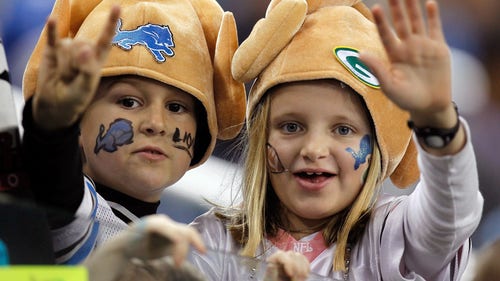US Open no longer 'open,' eliminates qualifying for major
The U.S. Open might feel more like a closed shop this year.
The COVID-19 pandemic, which already has postponed the U.S. Open at Winged Foot from June to September, has forced the USGA to do away with qualifying for the first time since 1924.
Open qualifying is the hallmark of golf's second-oldest championship. The USGA often points out that typically half of the 156-man field has to go through either 36-hole qualifying or 18-hole and 36-hole qualifying.
It even invested in a marketing campaign that was rolled out in February titled, “From Many, One,” to illustrate that more than 9,000 people apply to play in the U.S. Open, eventually yielding to one winner.
The USGA did not announce Monday how other players would become exempt.
Among those who have yet to qualify is Phil Mickelson, a runner-up six times in the only major he hasn't won.
Mickelson said in February he would not ask the USGA for an exemption, and that if he didn't qualify or become exempt, he wouldn't play. Winged Foot is where Mickelson made double bogey on the final hole in 2006 to lose by one.
The field presumably will be smaller because of the later date, though the USGA did not mention the field size in its April 6 announcement that the U.S. Open was moving to Sept. 17-20 at Winged Foot, in Mamaroneck, New York.
“As you can imagine, this was an incredibly difficult decision, as qualifying is a cornerstone of USGA championships,” said John Bodenhamer, senior managing director of championships for the USGA. “We take great pride in the fact that many thousands typically enter to pursue their dream of qualifying for the U.S. Open and we deeply regret that they will not have that opportunity this year."
Bodenhamer said no qualifying provides “the best path forward” to holding the U.S. Open.
The USGA said there would not be qualifying for three other championships it will hold this year — the U.S. Women's Open (moved to December in Houston) and the U.S. Amateur and U.S. Women's Amateur, both still scheduled for August.
The U.S. Open, which dates to 1895, had so many players wanting to compete in the years after World War I that it introduced qualifying in 1924. Then, it went to two stages of qualifying in 1959 — 18-hole local qualifying and 36-hole sectional qualifying.
Ken Venturi in 1964 and Orville Moody in 1969 are the only U.S. Open champions who got through both stages. Lucas Glover in 2009 was the last U.S. Open champion to go through 36-hole qualifying.
The USGA had 108 local qualifiers planned in 45 states and one in Canada, followed by 12 sectional qualifiers — nine in the U.S., one each in Canada, England and Japan.
When the U.S. Open was postponed, 50 players were exempt through various categories, such as past champions the last 10 years or top 10 from last year's U.S. Open, major champions from the last five years and the top 30 players who reached the Tour Championship last year.
The pandemic shut down golf on March 13, two months before the top 60 in the world ranking would have been exempt for the U.S. Open. The world ranking has been frozen since the shutdown. It was unclear when it would resume because while the PGA Tour is to resume on June 11, circuits in Europe, Japan and Asia have not said when they would return.
The USGA, meanwhile, has lost 10 championships to the coronavirus. It said Monday that four more were canceled — the U.S. Mid-Amateur and Women's Mid-Amateur, and the U.S. Senior Amateur and U.S. Senior Women's Amateur.








